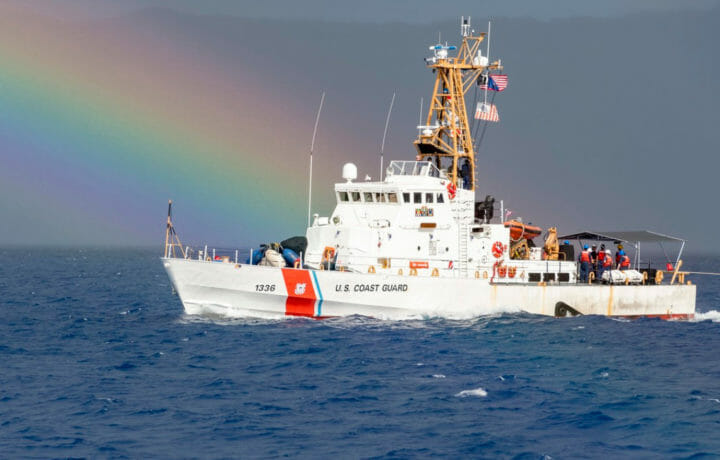As military organizations look for ways to increase the number of members needed to meet the demands of the cyber industry. The Coast Guard has decided to start using their Direct Commissioning Program to bring those needed cyber specialists into its cyber command as officers.
Direct Commission Cyber Officer Program
The Coast Guard direct commission programs represent one of the primary ways the U.S. Coast Guard meets critical specialty needs. Before cyber was added, there were seven programs recruits could use to gain a direct commission. Most programs are tied to a specific career field such as aviation, engineering, intelligence, lawyer, or physician assistant, with one program connected to selected schools and one for prior military officers. Now Cyber Officer has been added to the Coast Guard Direct Commissioning Program.
The Direct Commission Cyber Officer (DCCO) program was stood up on September 24, and will start with small numbers, focusing on pulling out talent from within the service. Rear Adm. Michael Ryan, commander of Coast Guard Cyber Security Command said at a briefing following the Joint Service Academy Cybersecurity Summit on Sept 23, “We’re grabbing our best and brightest and enlisted members and giving them the opportunity to join the officer ranks.” According to the DCCO website, to apply, you must have reached your 21st birthday but not your 41st as of September 30 of the fiscal year which the selection panel convenes. Current Coast Guard members who in the last 36 months have received a mark of four or less in any performance dimension or have had any blemishes on their record are ineligible to apply. Applicants must also have a Top Secret/Sensitive Compartmentalized Information (TS/SCI) clearance. Must meet dependent requirements based on rank and/or marital status, have a specified degree, and meet other specific requirements listed on the website.
The current plan has DCCO selectees commissioning approximately 30 days before attending their Direct Commissioning Officer (DCO) course in New London, CT. After commissioning, recruits will make a Permeant Change of Station to a prearranged assignment and then go Temporary Duty (TDY) to DCO course. The DCO course is 4-5 weeks long. Upon graduation from the DCO course, DCCOs will return to their home station unit to begin their career.
Coast Guard Follows Army Footsteps to Expand Cyber Force
The Coast Guard has long struggled with its aging IT infrastructure and a rapid increase in the number of cyber security threats. Recently, the Coast Guard updated its cyber strategy and since then has been looking to expand its cyber force. They recently asked for $12 million to fund a third cyber protection team in its fiscal 2022 budget request. They stated the funding would be used “to work with cyber specialists at critical ports of entry.”
The Army has also used direct commissioning as a source for new officers related to jobs in the Cyber career field. Their program began in late 2017 and the first officer training graduates began their Cyber training in May 2018. The Army’s program is a fast-track process and at the same time broadened some of the barriers to entry. One specific example is that most Army officer recruits must be under 32 but the Cyber program is open until the age of 41, just like the Coast Guard. And unlike the nine weeks of Basic Training followed by 12 weeks of Officer training, this program only required a four-week direct commission officer training and 12 weeks of condensed cyber basic officer leader course which is normally 37 weeks. Ryan is optimistic about the Coast Guards new program saying, “People can identify with the Coast Guards mission set, they want to be part of our crews. We’re going to try and find ways to allow them to contribute.”




